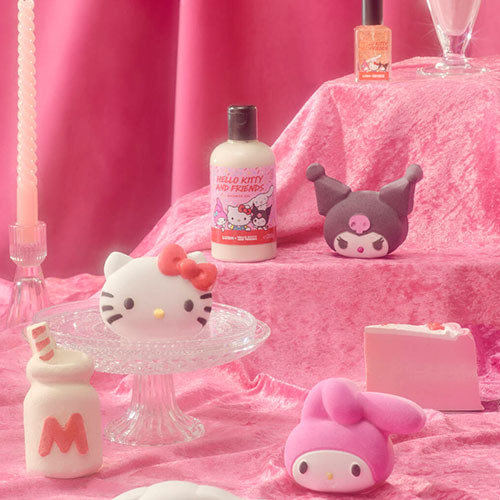Start Licensing’s Ian Downes receives a reminder how well produced licensed products resonate with consumers this week.
No trade show for me this week, but I know a lot of colleagues in the toy and food sectors are trade showing. I am getting ready for a trip to Birmingham and Spring Fair. It is a show I enjoy and one that allows me to surpass 10,000 steps each day.
The concept of trade shows is an interesting one and it is easy to rail against them with the suggestion that you can do everything from your desk, on the phone or online. But my experience, at the three trade shows I have attended already this year, is that there is a real value in meeting people face to face, chatting and of course seeing ‘real’ products. It can fire up new ideas and create fresh momentum.
I am looking forward to Spring Fair and will use some of my time there to seek out some new licensing partners. As I have mentioned before, all industries need fresh impetus sometimes and a trade show is a good opportunity to scout out new partners. Clearly there is a balance for the exhibitors who attend shows like Spring Fair to sell to retail, but a quick five minute chat can sometimes open some new doors. I think we all remember a stand a few years ago that had a notice saying ‘No Licensing Agents’, so you have to tread carefully and be sensitive to your reception, but I often find exhibitors welcome a chat and a change in dynamics: being sold to, not selling.
There have been some interesting things on my Lookout radar this week. One of my first jobs was working in the partwork industry and this was effectively my first connection with the world of licensing. During my time at Marshall Cavendish I was asked to go off to investigate licensing. It took me a week or two to get to grips with the subject. 28 years or so later I am still learning!
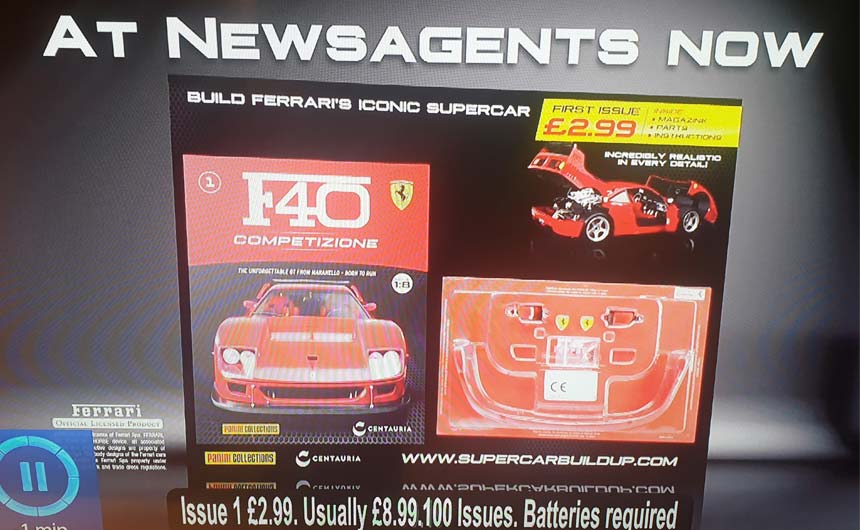
Anyway, partworks are now heavy users of licensing and this is peak season for partwork launches, so it was no surprise to see licensed products featuring in the latest new products. One that caught my eye was a Build Your Own Ferrari car model from Panini. I hadn’t realised Panini had moved into partworks, but it is a move that is easy to understand not least because of its licensing network, publishing capabilities and their expertise in collectables.
Partworks are increasingly added value products with an emphasis on titles like this, with model-making or other activities built into the product. For brand owners it is an opportunity to be part of a TV advertising campaign and a product that, when launched nationally, is widely distributed. It will be interesting to see what other ideas emerge in the partwork sector. It is one that could potentially allow non ‘mainstream’ brands to gain traction and it is also one where the publishers have got more efficient at targeting ‘special interest’ audiences.
I know Rebellion Publishing and Hachette have had great success over a long period with 2000AD and Judge Dredd partwork collections centred on hardback graphic novels for example.
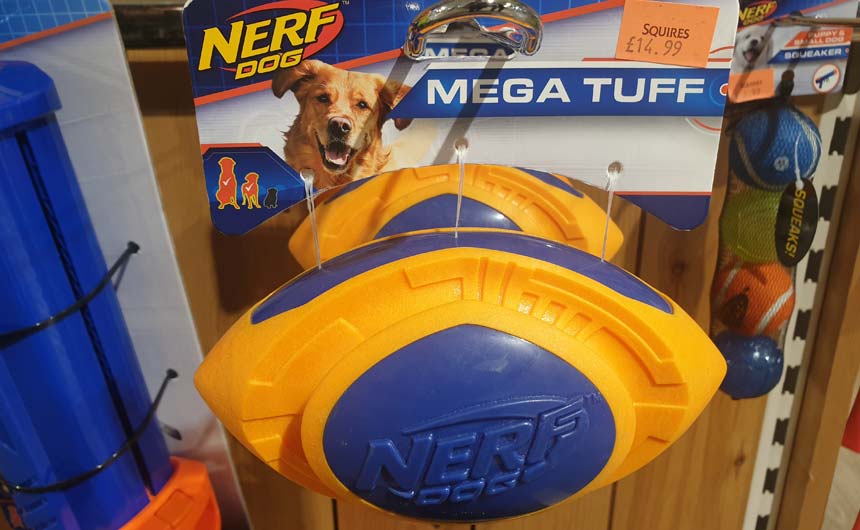
As a dog owner, I take quite a lot of interest in my local pet stores and garden centres. These days garden centres are big players in lots of categories beyond horticulture with pet care being a major part of their offering.
I spotted a great range of dog toys that have been developed using the Nerf brand. I think this has been around a while, which is testimony to the appropriateness of the product and the licensing development. It is a great example of lateral thinking and also developing a new market for a brand through licensing.
Most garden centres have lots of space for toys and games so you can see how an initiative like this could lead to wider activity in store. I imagine Nerf’s dog toys are also a great source of social media content which for any brand is a valuable commodity these days.
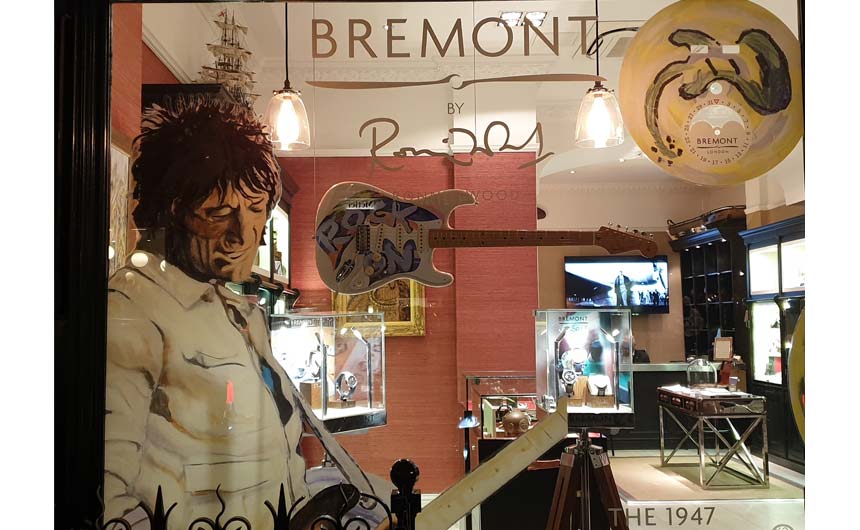
I think we are all aware of the growing importance and impact of music ‘brands’ in licensing. Categories like apparel feature band brands such as The Beatles, Rolling Stones and Nirvana. Licensors and licensees have woken up to the value of music in licensing terms, trading on the heritage and lifestyle aspects of the bands. This, of course, dovetails back to other developments like the renaissance in vinyl record sales and ‘comeback’ tours. Music has momentum. Pop art and street art also seems to be growing in popularity licensing wise. So I guess it is inevitable if you have a ‘rock legend’ who is also a talented artist that some licensing will happen.
Rolling Stone Ronnie Wood is a very talented artist and is worthy of the word ‘legend’. I spotted that Ronnie is working with watch company Bremont and has created a range of Ronnie Wood x Bremont watches using some of Ronnie’s art. Bremont’s house style is to incorporate something of the brand or band story into its watches – in this case I understand it is actually pieces of Ronnie’s art. This is really high-end luxury licensing – the watches sell for around £39,000 I believe.
It seems to be a ‘collab’ with a lot of depth and authenticity as it featured prominently in-store and in window displays. It is a really good example of how music can be used in high-end licensing. I am guessing this is also a partnership that holds some appeal to Ronnie Wood beyond the royalties. Seeing his artwork used in this way must give him a lot of satisfaction. For a super fan, it represents a very special way to follow a passion.
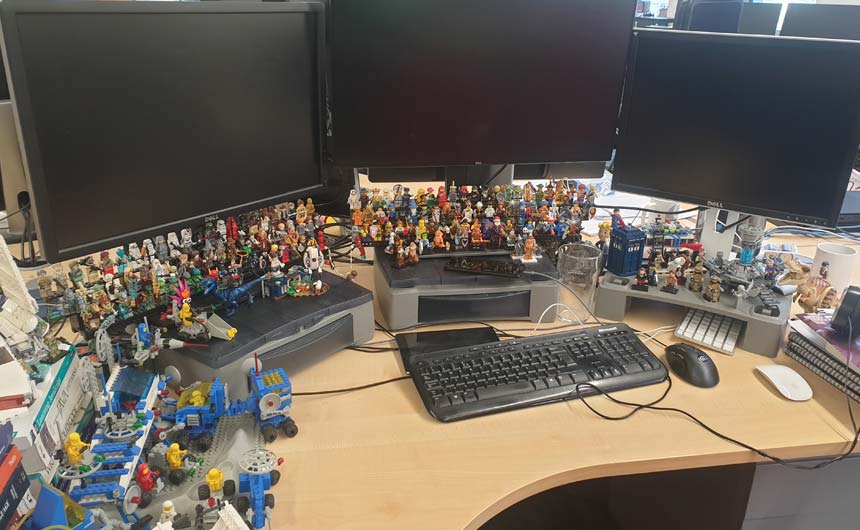
Finally, moving from meeting to meeting and trade show to trade show it is easy to forget that we work in the consumer goods sector and that often we are at the epicentre of pop culture. I got a very welcome reminder of how licensed products can really resonate with consumers this week.
I visited a computer games company and as you walk through the offices virtually every desk is decorated with LEGO figurines, Funko Pop Vinyls and other ‘pop’ merchandise. One desk stood out and I managed to get a quick photo of it. Bit cheeky to snap someone’s workspace, but I was full of admiration for the breadth of the pop culture collection on display and it was also a great reminder that well produced licensed products do resonate with consumers.
Ian Downes runs Start Licensing, an independent brand licensing agency. His Twitter handle is @startlicensing – he would welcome your suggestions for what to look out for.























